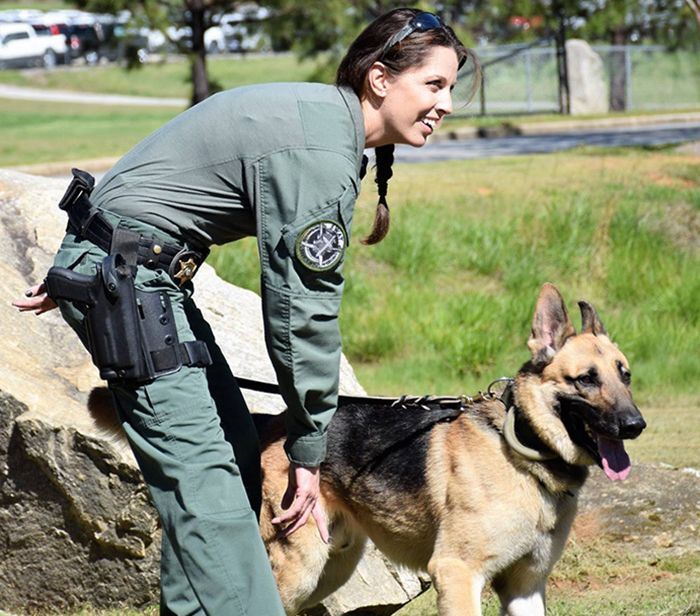Crucial Pet Educating Strategies for a Lifetime of Good Habits
Efficient canine training is foundational to promoting a mannerly friend that enhances our lives. Essential methods, such as positive reinforcement and consistent command training, not just improve obedience but additionally reinforce the bond in between proprietor and animal. Comprehending canine actions and using socialization techniques can avoid potential problems prior to they occur. However, the journey doesn't end with standard commands; addressing behavioral challenges needs a nuanced method that lots of forget. What are the essential aspects that can change your training experience and ensure long-term outcomes?
Comprehending Canine Actions

Additionally, comprehending the inherent impulses and drives of a dog-- such as prey drive, social interactions, and territorial behaviors-- enables instructors to prepare for and handle particular habits. As an example, a canine with a strong victim drive might call for different strategies than one that is extra socially inclined.
Additionally, early socialization and exposure to different settings significantly affect a canine's actions and character. Favorable experiences during essential developing durations can cause well-adjusted adult pets, whereas unfavorable experiences might lead to stress and anxiety or aggressiveness.
Positive Support Techniques
Among the various dog training methods, favorable reinforcement approaches stand out for their performance and ability to strengthen the bond in between dog and trainer (Ohana K9 Academy). This strategy emphasizes satisfying wanted habits instead of punishing unwanted ones, cultivating a more cooperative and trusting connection
Favorable support can take many kinds, consisting of deals with, praise, playthings, or play. The key is to supply instant incentives when the pet exhibits the desired actions, permitting them to make the link in between the action and the positive outcome. If a pet rests on command, providing a treat right away strengthens that actions, making it much more most likely to be duplicated.
Uniformity is vital in favorable support training. Trainers need to use the exact same hints and incentives to avoid puzzling the canine. Furthermore, varying the incentives can maintain the pet's passion and inspiration, transitioning from frequent treats to periodic praise or play as the dog masters the actions.

Basic Command Training
Structure on the foundation developed through favorable reinforcement techniques, fundamental command training works as a vital action in developing an accommodating pet dog. This training usually encompasses crucial commands such as "rest," "stay," "come," and "down - Ohana K9 Academy." Each command plays an important function in fostering reliable communication in between the canine and its proprietor, enhancing the general bond
To initiate standard command training, choose a silent environment devoid of diversions. Begin with short, focused sessions lasting no greater than 5 to 10 mins to maintain your pet's attention. Make use of high-value deals with as incentives, guaranteeing the pet connects right habits with favorable outcomes. When showing a command, utilize a clear, regular verbal sign gone along with by hand signals to reinforce understanding.
Persistence is crucial; dogs may need many repeatings to understand commands completely. Routine technique enhances check found out commands, strengthening them in your canine's behavior repertoire.
Socializing Methods
In the realm of pet training, socializing techniques are crucial for growing a well-adjusted and positive canine companion. Reliable socialization entails subjecting your pet dog to a selection of atmospheres, people, and other animals in a regulated and favorable way. The primary purpose is to assist your dog establish a comfort level with varied experiences, which can substantially reduce worry and anxiety in strange situations.
Begin socializing during the critical developing home window of 3 to 14 weeks, when young puppies are most receptive to new experiences. Present your pet dog to different setups, such as parks, city locations, and homes with various other pet dogs. Make sure these experiences declare by utilizing treats and praise to strengthen etiquette.
Team training classes are an excellent method to subject your canine to various other pets and individuals in a structured setting. This permits supervised interactions, assisting your pet discover proper social hints. Normal outings and playdates with well-mannered dogs hop over to these guys can additionally boost social skills.
Attending To Behavioral Issues
Dealing with behavior issues in pets is a vital aspect of training that calls for a methodical approach and understanding of canine behavior. Usual concerns such as barking, chewing, aggressiveness, and anxiousness can come from numerous elements, including lack of socialization, inadequate workout, or even clinical worries.
In addition, developing an organized routine that includes regular workout and psychological stimulation can substantially alleviate behavior problems. For example, interactive toys can maintain a pet engaged and reduce damaging tendencies. In situations of severe aggressiveness or stress and anxiety, speaking with an expert dog instructor or a veterinary my website behaviorist may be required.
Conclusion
In conclusion, efficient dog training techniques, including positive support, standard command training, and socialization, are important for cultivating good actions throughout a pet's life. Dealing with behavioral concerns with a systematic method not only enhances obedience but likewise enhances the bond in between dogs and their owners.